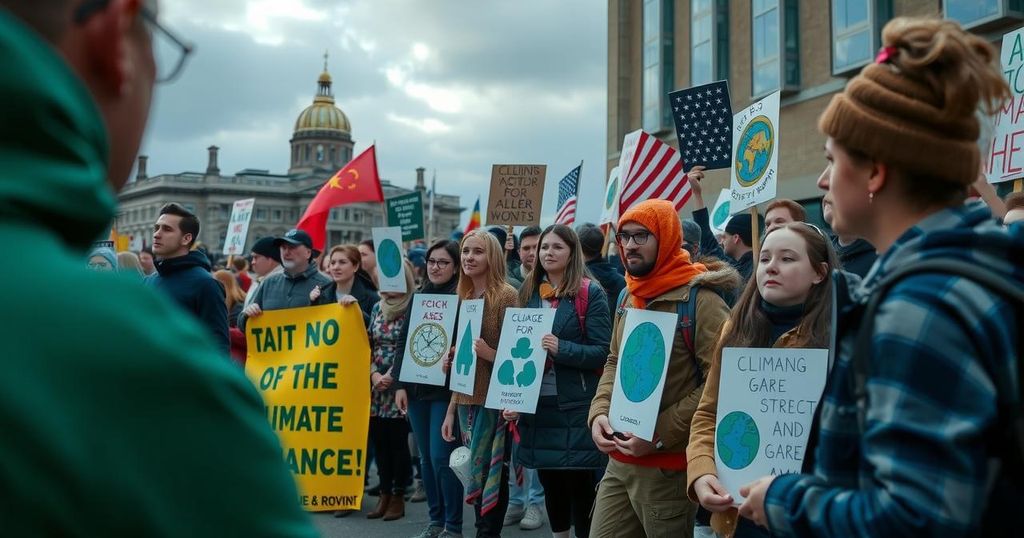The ICJ is holding hearings on the obligations of UN member states to combat climate change, driven by youth activists, notably from the Pacific Islands. This crucial case will explore the intersection of international law and environmental duty, with implications for global climate policy. An advisory opinion is anticipated in 2025, potentially shaping future negotiations and accountability in climate finance.
The International Court of Justice (ICJ) has commenced hearings in The Hague regarding climate change obligations for UN member states, driven by advocacy from youth-led organizations like the Pacific Islands Students Fighting Climate Change (PISFCC). Support for the case has come from leaders like Ishmael Kalsakau, the former prime minister of Vanuatu. The court will examine how international law compels states to protect people and ecosystems from climate change, with Vanuatu being the first of 98 nations to present its case. Youth activist Grace Malie emphasizes that the advisory opinion will establish an undeniable baseline for accountability in climate negotiations.
Tuvalu, facing dire threats from rising sea levels, has developed adaptive plans and resilience strategies, such as the Te Ataeao Nei (Future Now) project. Malie asserts that the advisory opinion will protect the cultural and heritage rights of Pacific youth as enshrined in international law. Unlike typical legal proceedings, this case spans various international legal frameworks, including the UN Charter and the Paris Agreement, underscoring the multifaceted nature of climate obligations.
Legal scholars and politicians anticipate that the ICJ’s opinion will have significant moral authority, even though it lacks enforceability. Fiji’s Attorney General, Graham Leung, asserts that the ruling will set a vital precedent that could influence global policy and norms on climate duty. Furthermore, critics of current climate finance structures believe that the opinion might facilitate clearer negotiations for financial reparations regarding climate impacts. The ultimate advisory opinion is expected in 2025.
The hearings at the International Court of Justice are pivotal as they bring to light the responsibilities of UN member states in addressing climate change. Initiated by youth activists from the Pacific Islands, the case seeks to affirm that international law mandates the protection of vulnerable ecosystems and populations from climate impacts. The involvement of youth leaders and the focus on several international legal agreements showcases the importance of this case at a global scale, reflecting a growing recognition of climate change as a pressing legal and ethical issue. The outcome may influence national and international policies, particularly regarding funding and support for climate-affected regions.
The ICJ hearings represent a crucial intersection of law, diplomacy, and climate advocacy, with potential ramifications for international approaches to climate change and environmental protection. As youth activists and member states present their arguments, the outcome could lead to greater accountability and clearer standards of conduct for nations regarding climate duties. All eyes will be on the court as it deliberates on these pressing issues that affect current and future generations.
Original Source: www.ipsnews.net







